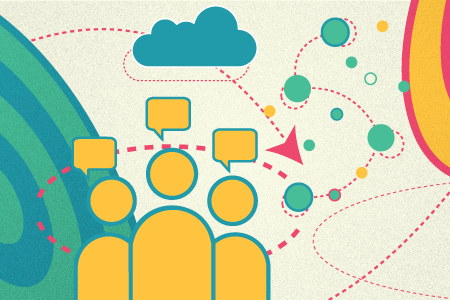
How to Combat Disruption Fatigue With Purpose
“Doing good by doing the right thing” should be the new innovation mantra. The benefits of values-driven, authentic innovation are well-established. Purpose-led reflective innovation, guided by a clear sense of mission, motivates managers and employees, and contributes generously to creating a sustainable—that is, green and lasting—business.
After two years of pandemic disruption, against a fast-evolving backdrop of climate change, we are all now struggling to adapt to a turbulent economic environment. As we seek to adapt to break-neck change in our circumstances, consumers everywhere are overloaded by instability. We are suffering from what we have identified, here at frog, as disruption fatigue.
What should we, as companies, do about this? In our recent Chief Challenges episode, Disruption Fatigue: How to Navigate the New Realities of Leadership, frog set out some answers. At its essence, the paper states that innovators need to pause and think about the wider implications of what they are doing.
Innovating to make lives better
Consumers are sick of companies that simply move fast and break things. As frog’s Disruption Fatigue report spells out, the kind of innovation that consumers welcome is holistic and purpose-led: it is innovation that makes life and lives better.
It is no longer enough to make a good product, satisfy consumers, employ people, make a profit and contribute to the economy.
We need to understand that brands also push consumers to make choices. To arrive at a buying decision, consumers must ask themselves: what do I want? What do I stand for?
Such questions oblige companies to solve real problems, not just problems of convenience. Jeremy Heimans, CEO of New York-based public benefit corporation Purpose, says: “The brands that last in the 21st century are going to be those that build community, social capital and societies.”
Good for people, planet and profits
That makes intuitive sense, but concretely, what does it mean for innovation decisions today?
Future purpose-led innovation needs to be human-centered and to consult and heed the views of diverse stakeholders, not merely customers and investors. It needs to understand how a product or service fits into our society and what needs to be done to ensure its overall effects are positive, without harming non-users.
Avoiding what economists call ‘negative externalities’ means avoiding damaging the environment and wildlife, for example, or sparing neighbors noise pollution or discarded packaging from takeaway meals. It means thinking through the entire production and usage cycle, rather than waiting for protests and lawsuits from victims of egocentric innovation.
Businesses need to realize that they are part of a wider ecosystem—and that can be as much a source of opportunity as of ruin.
Giving consumers and citizens more, for less CO2
Back Market, a leading unicorn out of France, is doing good for the planet and consumers alike by retailing ‘renewed’ tech devices such as mobile phones and computers. Consumers get a like-new phone at a lower price, avoiding the need to dismantle devices which are far from the end of their useful life and easing demand for scarce commodities and energy to make new ones. It has identified a clear consumer need and married it with a proposition that not only creates a new market but reduces waste in the process.
Another example in services is UK tech start-up Arwen, launched in 2021, which has developed software to scan social media accounts and remove 23 types of toxic content. This spares account holders from daily exposure to harassment, hate-speech, pornography, racism, aggression and more, restoring the pleasure of going online and exchanging news and views with a wider community. It’s a blessing for users as individuals and brings relief to corporate communications and marketing teams who spend their working hours building brands online.
The common link between these examples is reflection. Their innovators have taken time to think through ways in which their product responds to the needs of society and the environment. They’ve considered not just how it works, but also its supply chain and place in the sector supply chain, along with ways in which human behavior needs to change.
Finding the antidote to disruption fatigue
As far back as 2013, Gallup conducted a meta-analysis of 49,928 businesses across 49 industries in 34 countries. It found that margins were higher when companies had a clear mission and also that employees were more likely to ensure workplace safety, show higher productivity and have better relationships with customers.
There is ample evidence that a strong sense of corporate purpose benefits hiring and retention. Companies keen to remain relevant need to develop products and services that make the world a better place, while remaining vigilant for negative externalities—harm done to others by their operations—and to address these rapidly once identified.
The combination of purpose wider reflection, values and authenticity is a powerful antidote to the pervading sense of disruption fatigue. Change is a constant. But only change for the better is welcome.

Gagandeep is an Executive Vice President and is the Managing Director of frog globally and the Head of frog in the United Kingdom. A future focused senior leader commanding 25 years of experience gained driving innovation, growth and delivering customer experience and digital projects across global brands. Above all, a bold innovator with the capacity to evoke positive change felt at both a human and organisational level.
We respect your privacy
We use Cookies to improve your experience on our website. They help us to improve site performance, present you relevant advertising and enable you to share content in social media. You may accept all Cookies, or choose to manage them individually. You can change your settings at any time by clicking Cookie Settings available in the footer of every page. For more information related to the Cookies, please visit our Cookie Policy.


